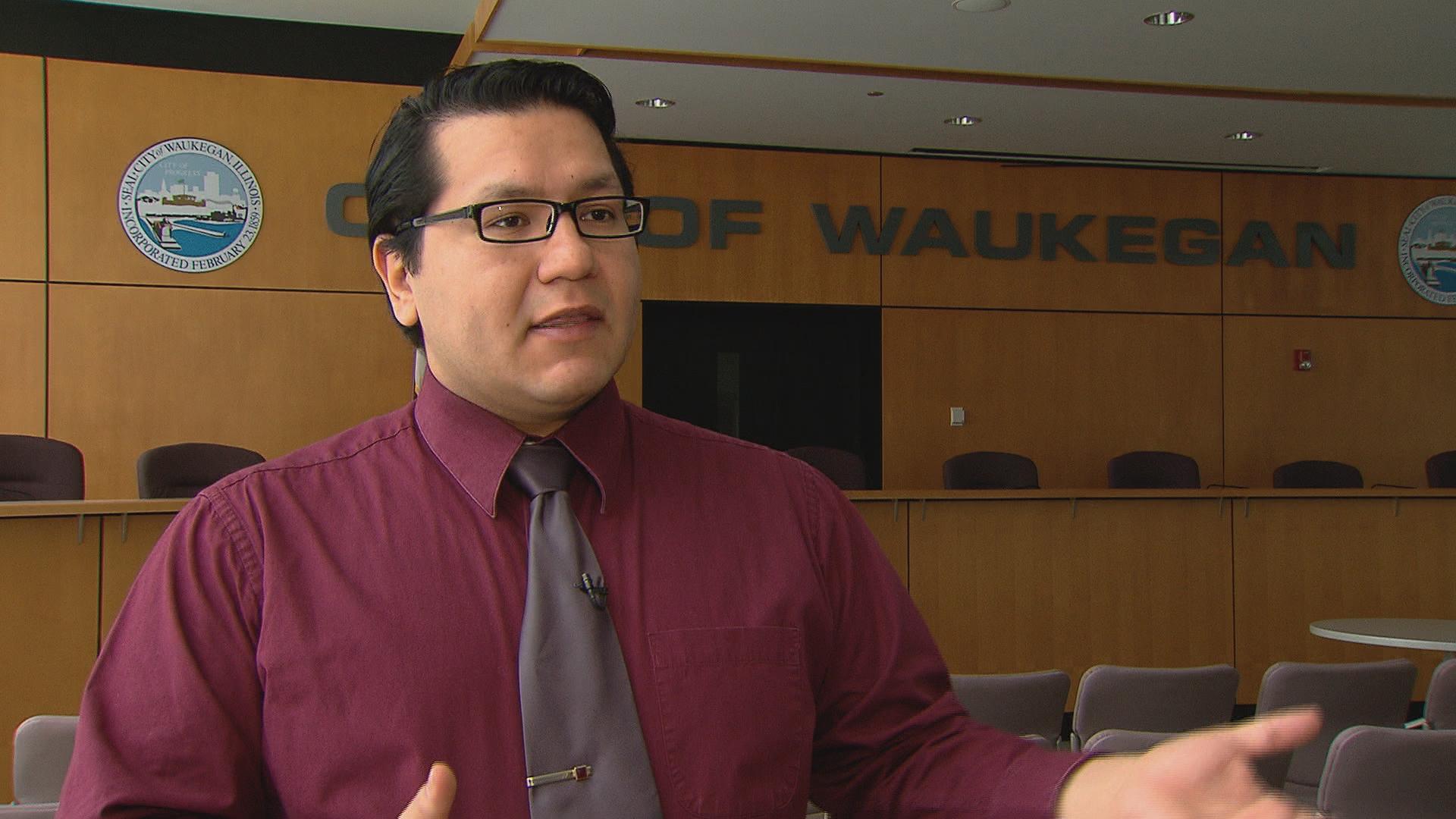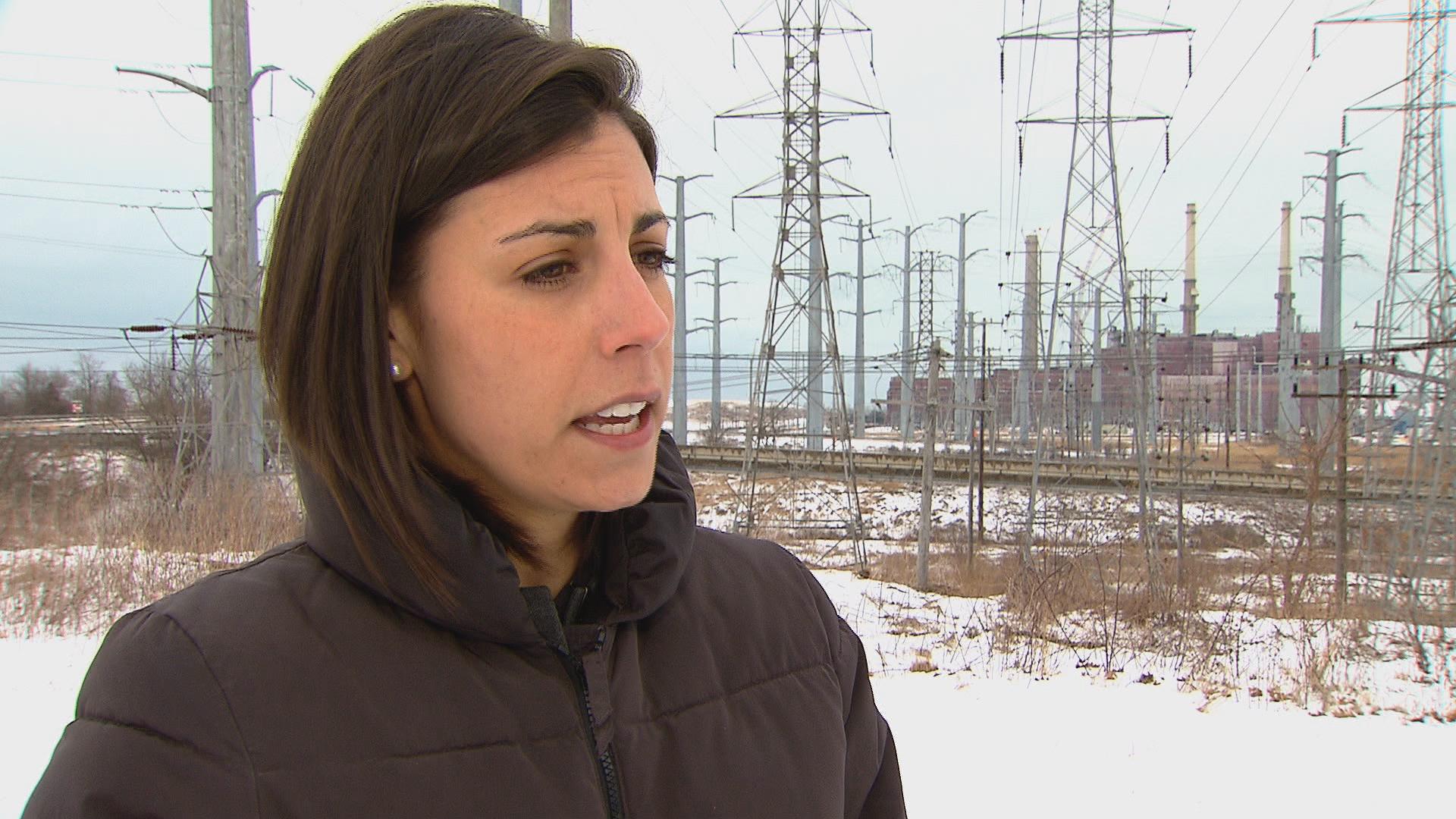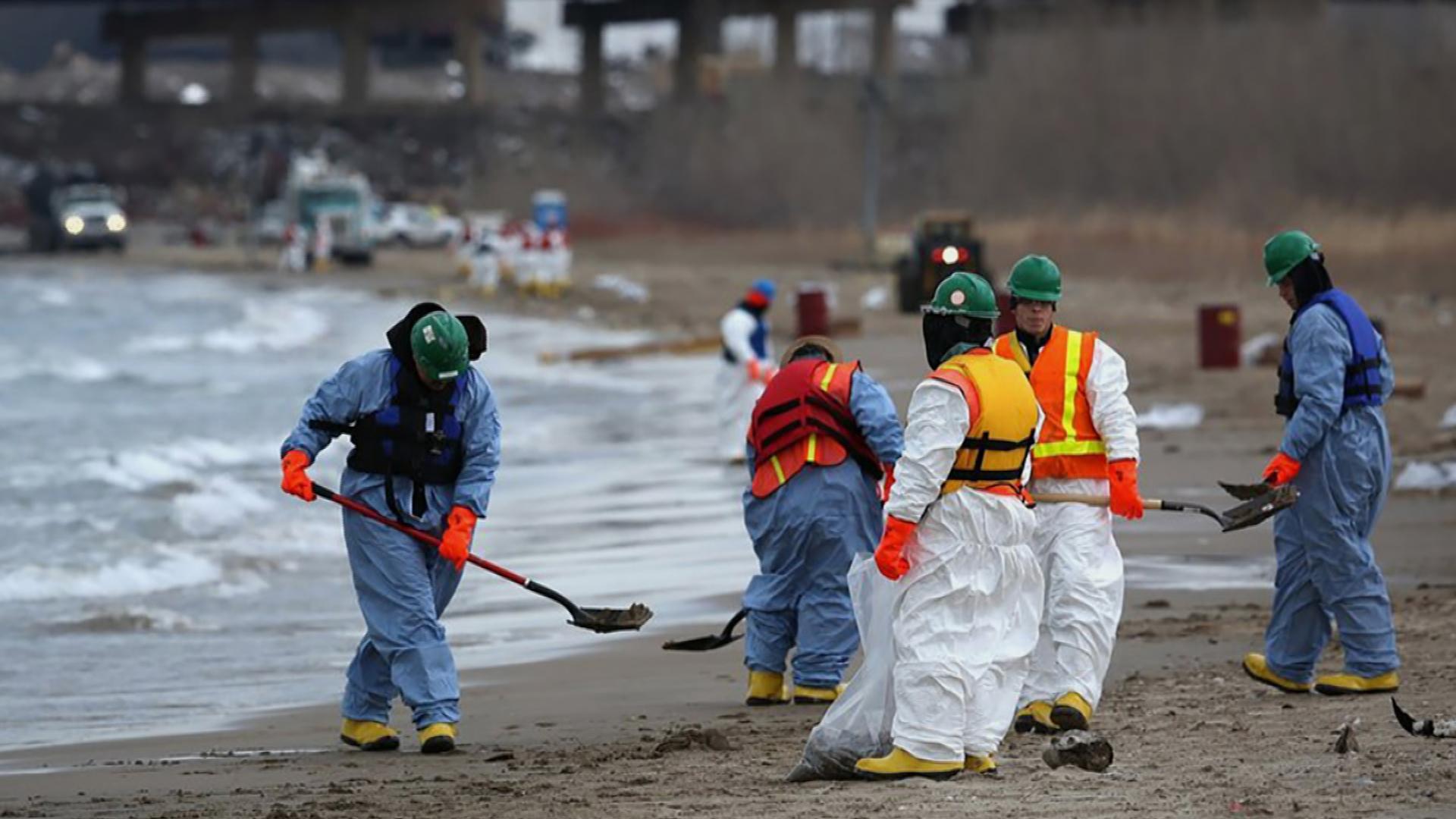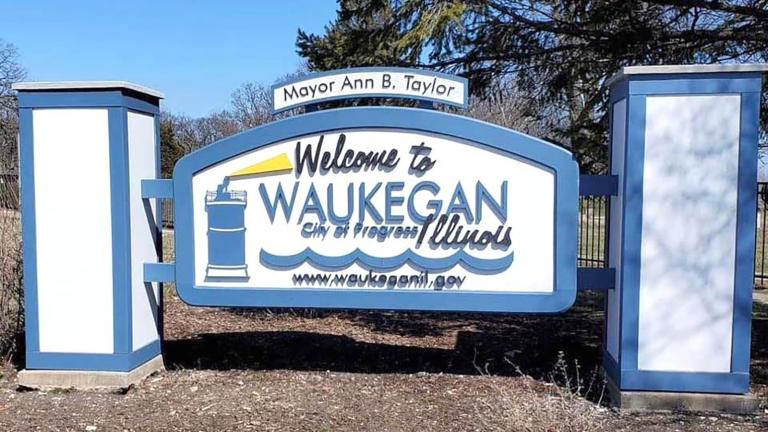Coal-fired power plants are closing around the country. In Chicago the last two remaining coal-fired power plants, Fiske and Crawford, closed in 2012.
Where coal-fired power plants remain, activists are pushing for plans that would spell out a closing date and focus on renewable clean energy sources.
But in Waukegan the coal-fired power plant provides jobs and critical tax dollars to the cash-strapped city. The mayor says losing the plant would be a devasting blow to Waukegan's fragile economy.
TRANSCRIPT
Elizabeth Brackett: The Waukegan coal-burning power plant has been on the shores of Lake Michigan for the past 88 years. Environmental activists like Christine Nannicelli from the Sierra Club were shocked when NRG Energy bought the plant along with three other Illinois coal-fired power plants in 2014.
Christine Nannicelli: Coal plants all around the country are closing because the economics of coal simply don't make sense any more. Even plants with recently updated pollution controls are still retiring because they are just not competing in regional energy markets.
Brackett: NRG Energy says it has put millions into upgrading its pollution-control systems at no cost to Illinois taxpayers or ratepayers, and says the plant is now in compliance with all state and federal EPA standards. The plant supplies enough electricity for 260,000 households and has no plans to shut down. That sounds good to Waukegan Mayor Wayne Motley.
 Wayne Motley
Wayne Motley: They've assured me that they're addressing those issues. They're in compliance with state and federal regulations for the emissions. I remember the old days and from the old days to now it’s a night and day difference. When I was young, I'd wake up in the morning and there'd be black soot all over our cars and our laundry but that was many, many years ago.
Wayne Motley
Wayne Motley: They've assured me that they're addressing those issues. They're in compliance with state and federal regulations for the emissions. I remember the old days and from the old days to now it’s a night and day difference. When I was young, I'd wake up in the morning and there'd be black soot all over our cars and our laundry but that was many, many years ago.
Brackett: The Sierra Club says NRG’s Waukegan plant may meet EPA pollution control standards, but …
Nannicelli: These plants are still by far the largest source of both air and water pollution in these communities and particularly right here in Waukegan and Lake County. There's simply no clean or healthy or safe way to burn coal in a densely populated community like Waukegan.
Brackett: Like all coal plants, Waukegan has coal ash ponds that store the waste after the coal has been burned. In 2012 the Illinois EPA cited the plant for leaking arsenic and other pollutants into the lake, from those ponds. NRG says it has since lined the ponds and is no longer responsible for any lake pollution.
Though signs telling fisherman to only eat a small portion of the fish caught along the Waukegan shoreline indicate that arsenic, mercury and lead remain in the water.

Nannicelli: The USEPA themselves has said in a risk assessment that living near wet coal ash ponds similar to the ones here in Waukegan are more dangerous than smoking a pack of cigarettes a day.
Brackett: Still, Mayor Motley says the coal-fired power plant plays a vital role in the community.
Motley: It's the third largest taxpayer in the city of Waukegan. We've generated about $900,000 a year in property taxes from that plant. They employ about 100 skilled laborers, engineers and things of that nature, so it does have a huge financial impact on the city. Were they to leave it would be a major loss for the city.
Brackett: Waukegan resident Julie Contreras also worries about the coal-fired power plant leaving Waukegan. She has a fondness for coal stemming from the days when her grandfather worked as a coal miner.
 Julie Contreras
Julie Contreras: For me attacking coal is un-American because I grew up with a grandfather that would come home with his hands full of coal and his solution to us if something was wrong, maybe we had a toothache or something, would be to chew a piece of coal … and I think that it’s not appropriate or fair for them to attack just the Waukegan plant. I don't think it’s fair. I think it belongs in our community.
Julie Contreras
Julie Contreras: For me attacking coal is un-American because I grew up with a grandfather that would come home with his hands full of coal and his solution to us if something was wrong, maybe we had a toothache or something, would be to chew a piece of coal … and I think that it’s not appropriate or fair for them to attack just the Waukegan plant. I don't think it’s fair. I think it belongs in our community.
Brackett: Contreras also praises NRG's community involvement. She chairs the Lake County Latino activist group LULAC.
Contreras: This summer the NRG Energy came out to our LULAC national office that still needs a lot of work. They helped us clean all of it out. We purchased a building and it had to be gutted out from the old owners that were there. They helped us put our electricity up to code.
Brackett: But so far NRG has not agreed to participate in a community-wide task force that would evaluate the environmental and economic consequences of transitioning from coal to clean energy. Sister Kathleen Long says her group, Clean Power Lake County, wants to see a task force work.
 Sister Kathleen Long
Sister Kathleen Long: We as citizens want to work with the mayor and the City Council to have a plan into the future. How long will they be here? And if they're going to leave in two years, five years or 10 years, who is going to pay for the cleanup? That is a big issue too. And they could be alternative energy. We're not kicking out NRG. We want to work with them. They have great ideas for solar energy.
Sister Kathleen Long
Sister Kathleen Long: We as citizens want to work with the mayor and the City Council to have a plan into the future. How long will they be here? And if they're going to leave in two years, five years or 10 years, who is going to pay for the cleanup? That is a big issue too. And they could be alternative energy. We're not kicking out NRG. We want to work with them. They have great ideas for solar energy.
Brackett: NRG has plans to put $3 million worth of solar panels on area schools rooftops. The mayor says he has pushed for the creation of a transition task force.
Motley: I’ve tried to foster a meeting between NRG, Sierra Club and Lake County Clean Power and we've been unable to do that at this point. I've talked to the management there and they're just not prepared to have discussions.
Brackett: There is a lot of discussion going on in Waukegan about how to revitalize the lakefront which has long been plagued with industrial pollution. Real progress was achieved two years ago with the completion of the 20 year, $150 million project to clean up PCBs from Waukegan harbor. With the harbor now restored, many, like Waukegan 4th Ward Alderman David Villalobos, see the coal-fired power plant as the next hurdle.
 David Villalobos
David Villalobos: For decades, people have not been able to walk the land on our lakefront and part of that is I have a vision of the lakefront that's more accessible to the community. The coal plant hinders that.
David Villalobos
David Villalobos: For decades, people have not been able to walk the land on our lakefront and part of that is I have a vision of the lakefront that's more accessible to the community. The coal plant hinders that.
Brackett: A master plan for redeveloping the lakefront was created for Waukegan in 2003 by the top architectural firm Skidmore, Owings and Merrill. The plan did not include the removal of the coal-fired power plant.
Motley: I suppose if Skidmore, Owings and Merrill didn't think it was important enough to take the plant out we can work around it.
Brackett: Though a recent survey in Waukegan commissioned by the Sierra Club’s Beyond Coal campaign found that 70 percent of Waukegan voters support a transition plan to retire the NRG power plant.
So what would you consider a victory in this campaign?
 Christine Nannicelli
Nannicelli: Victory would be a responsible long-term plan for the plant with a retirement date and a transition plan for impacted workers, tax base and new reuse opportunities for this site as a whole.
Christine Nannicelli
Nannicelli: Victory would be a responsible long-term plan for the plant with a retirement date and a transition plan for impacted workers, tax base and new reuse opportunities for this site as a whole.
Brackett: But the mayor does not see the plant closing anytime soon.
Motley: It's not going to happen in my lifetime and I'm 65, but I don't think they're going to close in my lifetime.
Brackett: The activists claim the numbers don't favor the mayor. According to the Clean Power Lake County coalition, coal plants are now closing at the rate of one every 10 days.
NRG Energy provided information for this report but was unwilling to do an on-camera interview. Though NRG Energy insists it is in compliance with all EPA standards, the EPA says there is a long-standing complaint against the Waukegan plant for violations of air quality emmission standards called opacity standards.
The EPA says the case is stayed at the moment to allow the parties to reach a settlement, which will include compliance measures as well as a penalty.
Related stories from "Chicago Tonight"
 Chicago’s Lead Pipes: What You Need to Know
Chicago’s Lead Pipes: What You Need to Know
Feb. 18: The disaster in Flint has spotlighted the dangers and adverse health outcomes of lead seeping into communities’ drinking water. Elizabeth Brackett reports on the lead pipes carrying water into Chicago and suburban homes.
 As Risk of Great Lakes Oil Spill Grows, So Do Concerns About Cleanup
As Risk of Great Lakes Oil Spill Grows, So Do Concerns About Cleanup
Dec. 15, 2015: The risk of a Great Lakes oil spill has grown as the region becomes a hub for refining and transporting heavy tar sands oil. Oil that the Coast Guard says it does not have a method to clean up.
Activists: 62-Year-Old Pipeline Poses Threat to Straits of Mackinac
Aug. 10, 2015: A break in the aging pipeline that crosses under the pristine waters of the Straits of Mackinac could be catastrophic for the Great Lakes. Is the old pipeline a threat?







